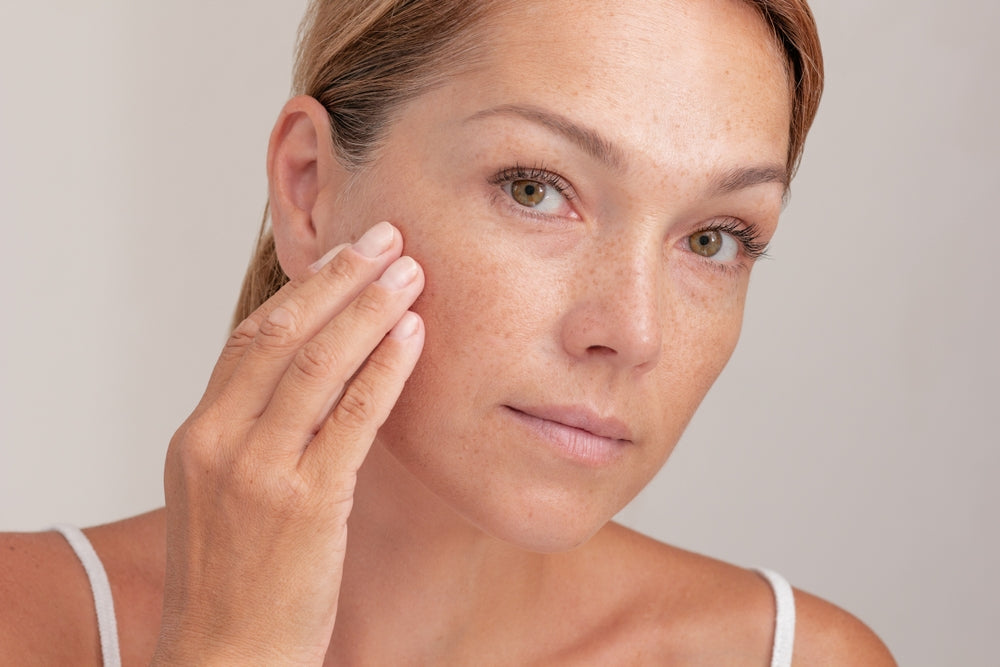Sensitive skin is a common concern that can leave your skin feeling tight, itchy, and prone to redness or irritation. While it can affect anyone, understanding what causes sensitive skin and how to care for it can make a significant difference. In this blog, we will explore the causes of sensitive skin, provide tips for keeping it vibrant looking, and introduce you to Epicuren Discovery’s skincare products designed for those concerned with sensitive skin.
What is Sensitive Skin?
Sensitive skin is often characterized as highly reactive, easily reddened, or sensitized. This can be due to your lifestyle and health, such as skincare products, environmental factors, or even stress. Symptoms may include redness, dryness, itchiness, or a burning sensation. This condition can be temporary or chronic and varies from person to person.
What Causes Sensitive Skin?
Sensitive skin may develop for various reasons, including:
Allergic Reactions
Allergies to specific ingredients in skincare products, laundry detergents, or foods can trigger sensitivity. Symptoms include redness, swelling, or itchiness.
Certain Skin Conditions
Skin conditions like eczema, rosacea, and psoriasis make the skin more vulnerable to irritation and can amplify sensitivity.
Skin Care Products
Some common skincare ingredients can disrupt the skin barrier or cause allergic reactions for some people, leading to sensitized skin.
Sun
Overexposure to the sun’s UV rays can damage the skin barrier, create inflammation, and lead to irritation or hypersensitivity, especially in individuals prone to sunburn.
Health Issues
Hormonal changes, autoimmune disorders, and chronic illnesses like diabetes can increase skin sensitivity.
Tips for Keeping Your Skin Looking Vibrant
Caring for sensitive skin requires a mindful approach to skincare and lifestyle choices. Here are some tips:
Avoid Over Washing or Exfoliating Too Much
While cleansing and exfoliating are essential, overdoing it can strip your skin of natural oils. Use a gentle cleanser and exfoliate no more than one to two times per week.
Use Fragrance-Free Products
Choose products labeled as fragrance-free, hypoallergenic, and free of dyes to minimize irritation.
Moisturize Your Skin
A good moisturizer is known to visibly help the skin barrier. Look for products designed specifically for sensitive skin.
Stay Out of the Sun
Wear sunscreen daily, preferably one with zinc oxide or titanium dioxide, and use protective clothing to minimize sun exposure.
Contact a Dermatologist or Allergist
If your sensitivity persists, consult a dermatologist or allergist to identify triggers and develop a personalized care plan.
Our Skincare Products with Sensitive Skin In Mind
At Epicuren Discovery, we offer a range of products crafted to nurture skin. From gentle cleansers to hydrating moisturizers, our skincare line is designed for all skin types in mind. Explore some of these products for more sensitive skin
Frequently Asked Questions
What is the best thing for sensitive skin?
The best approach for highly sensitive skin is using gentle, fragrance-free skincare products, keeping your skin moisturized, and protecting it from sun exposure.
What are the four types of sensitive skin?
The four types are naturally sensitive (aka genetic predisposition), environmentally sensitive, reactive, and thin skin. These can include things like heat sensitivity, dehydrated/dry skin, and contact or allergic dermatitis.
Which ingredient is not good for sensitive skin?
Some ingredients like alcohol, fragrances, sulfates, and exfoliants can irritate sensitive skin.
What is the best face moisturizer for sensitive skin?
A fragrance-free, non-comedogenic moisturizer with ingredients like hyaluronic acid or ceramides is ideal.
What is the best serum for sensitive skin?
Look for serums with ingredients like niacinamide or aloe vera to ease visible irritation.
What is the best cleanser for sensitive skin?
A gentle cream or gel cleanser free of fragrances works best for sensitive skin.
--
This blog is for informational purposes and is not a substitute for professional medical advice. If you experience severe or persistent sensitivity, consult a dermatologist or healthcare provider.
--





